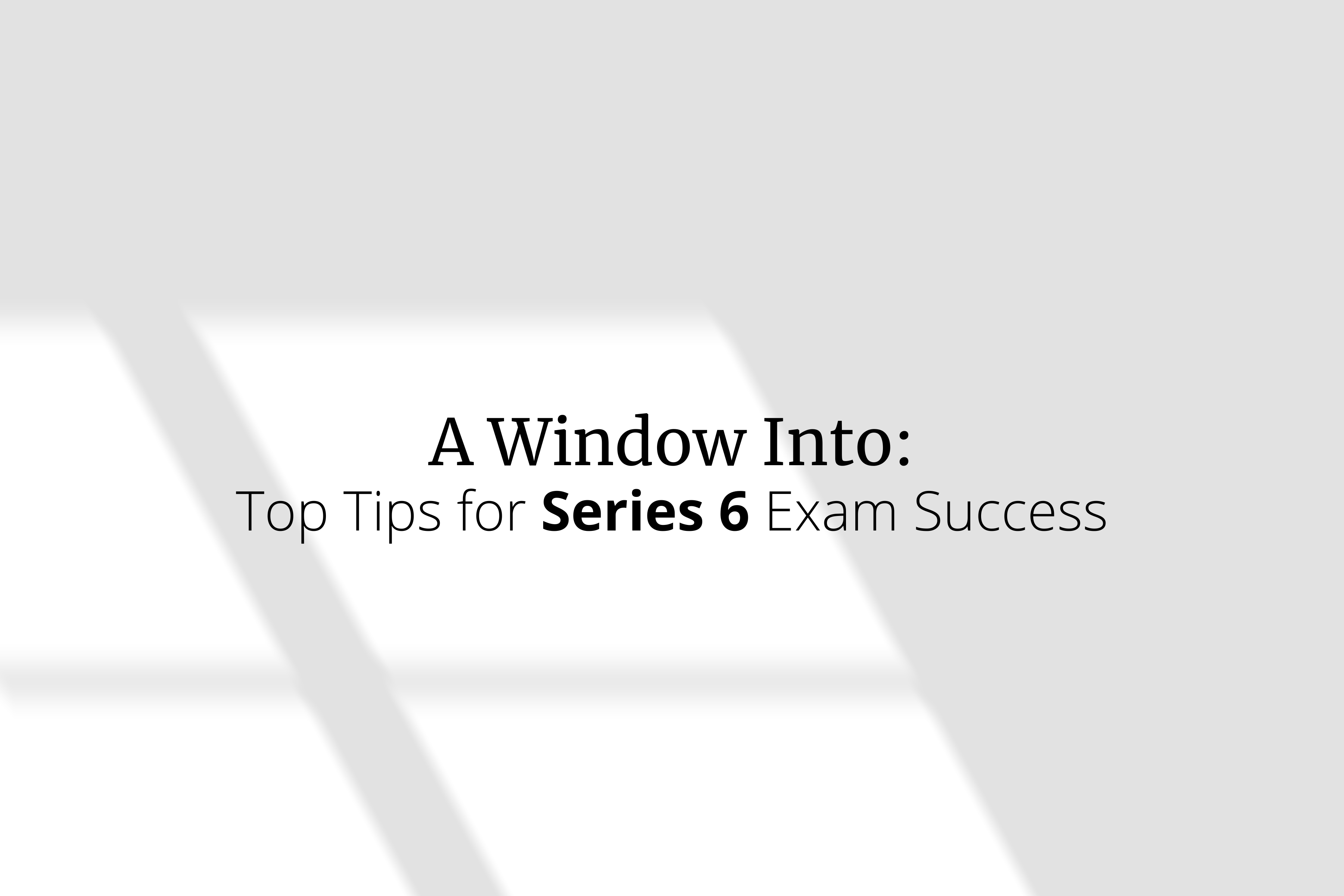Passing the Series 6 exam requires diligent preparation and concept mastery. Though there’s no easy way to breeze through the prep process, it helps to know what to expect. The tips below will help you study smart and earn that extra boost of confidence, which is essential to your success.
How to Prepare for the Series 6 Exam
1. Remember what you learned for the SIE.
Even though the Series 6 exam goes beyond the foundational concepts of the SIE exam, you will need to remember some of the fundamentals you studied for the SIE. Reviewing SIE general securities rules and markets can be beneficial, especially if you took the SIE exam some time ago. And if you recently completed the SIE exam, then we encourage you to take the Series 6 soon after to avoid “SIE leakage.”
2. Review tax matters and their consequences.
The Series 6 concentrates on mutual funds and variable annuities, how they function, and why they are suitable for customers. Without a doubt, you need to understand their unique product features, charges, and applicable regulations. Although you can’t give tax advice as a registered representative, you will need a grasp on tax matters. Therefore, you can expect tax questions involving growth within investment company products, all types of distributions, liquidations, gifting, and inheritances. These tax-related questions can make up some of the more complicated questions on the exam, especially if you have little experience in tax matters.
3. Revisit common math formulas.
Don’t be surprised if you don’t use your calculator while taking the Series 6 exam. Proving you know how to perform a mathematical calculation isn’t as important as being able to identify the formula that is used to solve for a particular outcome. For example, you might not need to calculate the public offering price (POP) of a mutual fund when given the net asset value (NAV) and the percentage of the sales charge (SC), but you might need to identify the formula to do so: POP = NAV/100 – SC%.
4. Focus on customer situations, not just facts.
As an introduction to the securities industry, the SIE exam covers a broad range of concepts at an introductory level. Questions on the SIE are typically definitional and factual rather than situational. On the other hand, the Series 6 exam covers functions that representatives perform, including soliciting business, opening accounts, making suitable recommendations, processing orders, and keeping records. While the facts need to be mastered, the Series 6 questions demand a higher level of application, analysis, and understanding, not just the ability to recall facts.
5. Understand that shorter does not mean easier.
For many test takers, a shorter exam is a welcome change. It’s tough to stare at a screen for several hours and stay focused while the questions keep coming. With just 55 questions (including five that are unscored) and a completion time of 90 minutes, the Series 6 exam is one of the shortest securities exams. But this means you can only miss 15 questions to earn your 70% passing score. There are no throw-away questions on such a short exam—every question matters.

